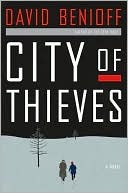“I found a dead body in the cucumber patch,’ I told them.
‘How very like you,’ Ophelia said, and went on preening her eyebrows.”
~ Alan Bradley, The Sweetness at the Bottom of the Pie, pg 35
The Sweetness at the Bottom of the Pie is a perfect example of mistakenly judging a book by its cover. I’ve shelved this book a dozen times at my library, thinking it was one of those culinary and knitting mysteries that have become such a popular sub-genre. Had I realized this mystery featured a morbid 11-year-old girl detective in 1950s England, I would have checked it out years ago.
Flavia de Luce is no preteen Nancy Drew. They both are raised by their fathers, have amazing deductive reasoning, and won’t let a locked door stop their investigations. But the similarities end there. Flavia is more intense and far less hygienic, moral or kind. Her passion is chemistry -in particular experimentation in poisons. She adventures alone, without a Ned, Bess or George for companionship. As a mom, I wanted to reach into the pages, grab her and lecture her on her childish sense of immortality.
This passage captures Flavia:
“I made the Girl Guide three-eared bunny salute with my fingers. I did not tell him that I was technically no longer a member of that organization, and hadn’t been since I was chucked out for manufacturing ferric hydroxide to earn my Domestic Service badge. No one seemed to care that it was the antidote for arsenic poisoning.” (pgs. 306-307)
Flavia is the reason to pick up this novel. I didn’t find the mystery particularly spell-binding, but her character makes up for that. She reminds me of a feral kitten–somehow still cute even after its lashed you with its razor claws. Pick her up 😉

